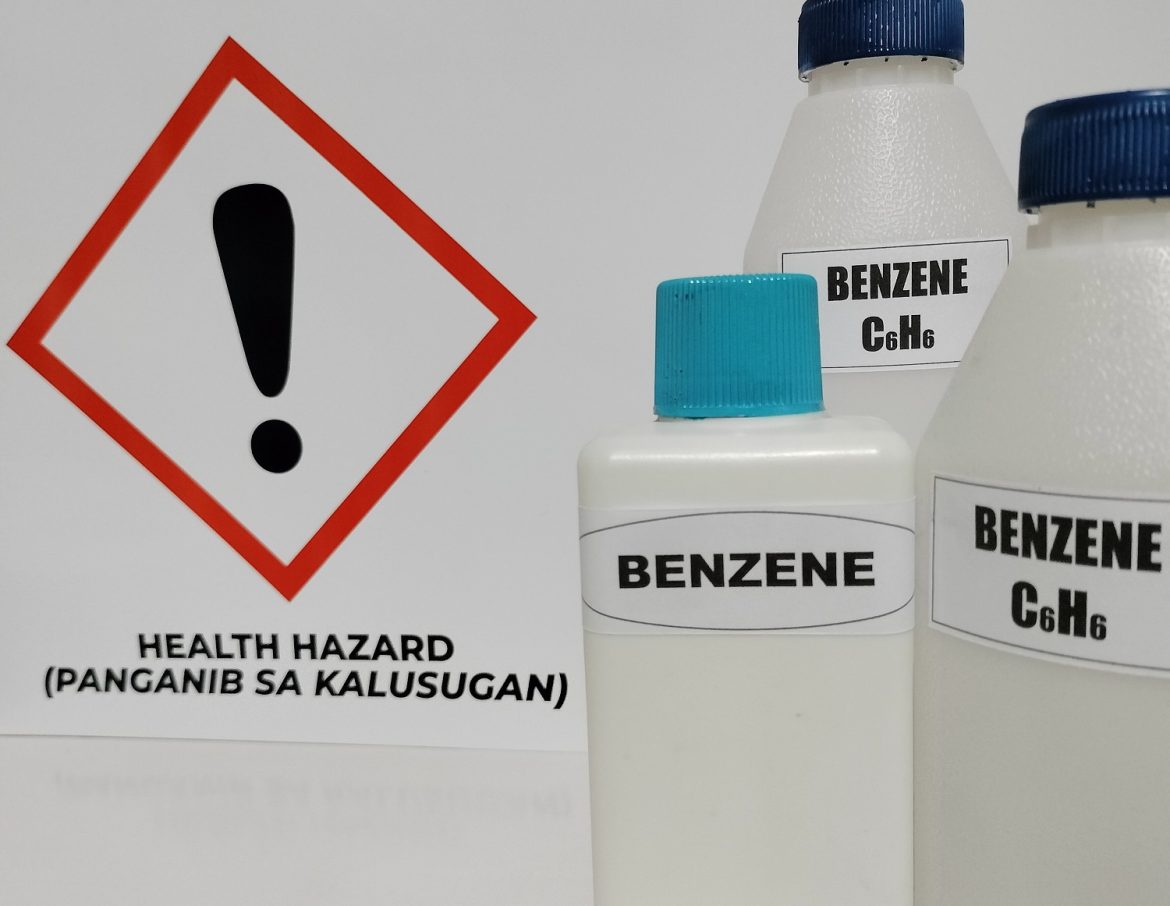QUEZON CITY — The toxics watchdog group EcoWaste Coalition welcomed the progress in the ongoing efforts to develop a Chemical Control Order (CCO) regulating benzene, a known carcinogen, by the Department of Environment and Natural Resources – Environmental Management Bureau (DENR-EMB).
As one of the 10 chemicals or groups of chemicals of major public health concern as identified by the World Health Organization (WHO), the group expressed optimism that the finalization and eventual promulgation of the CCO will contribute to the effective control on the use of benzene with the end view of reducing occupational and environmental exposure to this category one carcinogen, or a substance that can cause cancer in humans as per the International Agency for Research on Cancer (IARC).
The EcoWaste Coalition particularly welcomed the posting of the revised draft CCO for benzene on the EMB website for further public comments. “Unless no technically and economically feasible alternative for replacement is available,” the CCO “prohibits the importation, manufacture or use of benzene and benzene-containing mixtures in the following applications: paints, varnishes, coatings, solvents, and thinners; glues, contact cement and rubber goods; solutions for textiles, fabrics and leathers; inks and dyes; cleaning and degreasing agents; and toys and other children’s products.”
The group in November 2023 submitted pertinent comments to strengthen the original draft CCO, noting that its development and promulgation was in line with the newly adopted Global Framework on Chemicals – For a Planet Free of Harm from Chemicals and Waste (or the GFC), which seeks to “prevent or, where prevention is not feasible, minimize harm from chemicals and waste to protect the environment and human health, including that of vulnerable groups and workers.”
To better understand how benzene is regulated in other countries, the group reached out to partner groups in Asia-Pacific and in Europe. Relevant information on current regulatory controls provided by colleagues from India, Malaysia, South Korea, Australia, and the European Union was compiled and provided to the DENR-EMB.
As reflected in the revised draft CCO, the DENR-EMB has positively considered some of the suggestions provided by the EcoWaste Coalition, such as the following:
1. Prohibition on benzene and benzene-containing mixtures in “toys and other children’s products” to protect Filipino children who are particularly susceptible to risks and harms caused by benzene and other hazardous chemicals;
2. Replacement of the word “may” with “shall” in the provision tasking the DENR-EMB to develop a phase-out plan for the allowed uses of benzene as this will indicate the government’s commitment to green chemistry and show support to the GFC target on “the transition to safer and more sustainable chemical alternatives.”
3. Inclusion of “online marketplace and electronic commerce systems” in the section on liability to address the problem with the digital trade of controlled chemicals, particularly by unauthorized persons or entities.
4. Creation of a new section on “Coordination with Other Government Agencies” for better alignment of benzene-related policies and programs. This will, according to the group, “create better linkage across diverse sectors” (another GFC target), especially among government regulators.
Since the draft prohibition only applies “unless no technically and economically feasible alternative for replacement is available,” the EcoWaste Coalition reiterated its earlier proposal that juridical applicants should be required to provide information to the DENR-EMB on the risks and benefits of the proposed use of benzene and possible alternatives. Adding this in the “General Requirements and Procedures” will support the GFC target on “better transparency and access to information regarding chemicals and their associated risks,” the group said.
Finally, the EcoWaste Coalition suggested a periodic review of implementation of the CCO, with the participation of stakeholders, to assist the DENR-EMB in assessing the effectiveness of the order and the necessary measures to improve compliance and enforcement.
As stated by the WHO: “Human exposure to benzene has been associated with a range of acute and long-term adverse health effects and diseases, including cancer and haematological effects. Exposure can occur occupationally, in the general environment and in the home as a result of the ubiquitous use of benzene-containing petroleum products, including motor fuels and solvents. Active and passive exposure to tobacco smoke is also a significant source of exposure.”
“Public health actions are needed to reduce the exposure of both workers and the general population to benzene,” the WHO emphasized.

